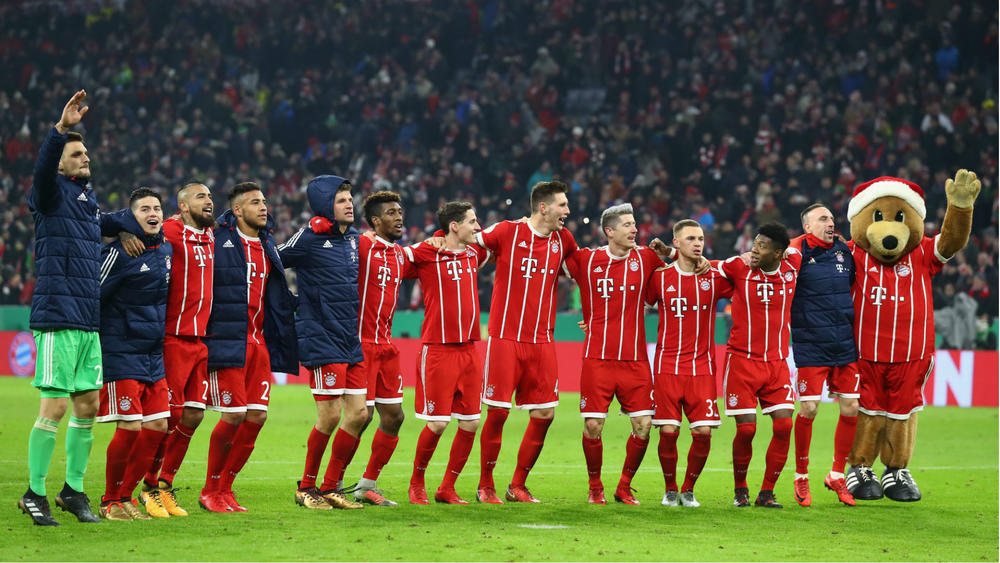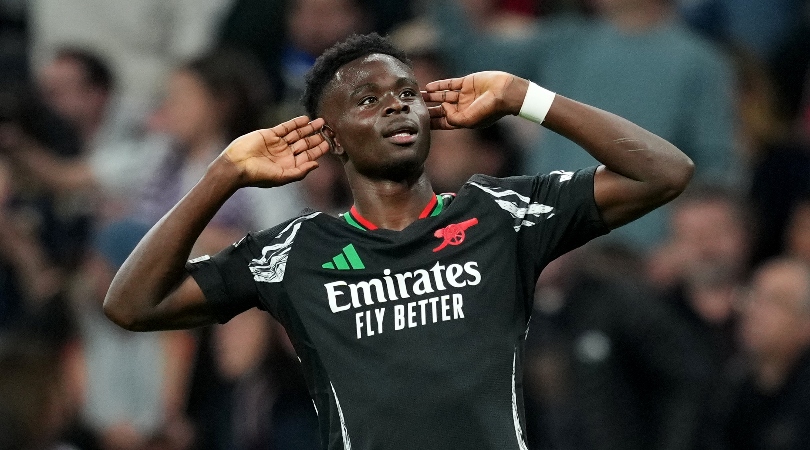Bayern Munich v Borussia Dortmund: Bundesliga model under the spotlight as coronation awaits
Opponents of 50+1 want to challenge Bayern Munich's Bundesliga hegemony but removing the rule might only serve to increase their dominance.

Jupp Heynckes' seamless return to life with Bayern Munich will soon be crowned by the club's sixth consecutive Bundesliga title – a run he started in 2012-13.
That season Bayern came out on top in a titanic struggle with Borussia Dortmund, wrestling back domestic control from Jurgen Klopp's vibrant side and beating them 2-1 after extra time in the Champions League final.
Respective thumping wins over Barcelona and Real Madrid to reach that Wembley showpiece and the exploits of that season, along with Germany's World Cup triumph 12 months later, underlined the Bundesliga's status as Europe's model league in the eyes of many purists.
Low ticket prices, huge crowds, great teams, fierce competition, pioneering youth development and majority member ownership of clubs – the latter enshrined by the much-discussed 50+1 rule – all helped to foster that reputation.
As Bayern prepare to welcome Dortmund to the Allianz Arena five years on, some of the shine has undeniably come off. The Bundesliga has ended up being a procession once again, where all roads lead to Bavaria.
The most jarring element this year is the sense Bayern have not had to be particularly good, just competent and reliant on the old instincts under the gentle guidance of a familiar mentor.
If Bayern beat Dortmund – the past two league meetings on home turf have ended 4-1 and 5-1 in their favour – and Schalke fail to do likewise against Freiburg earlier on Saturday, they will be champions.
Get FourFourTwo Newsletter
The best features, fun and footballing quizzes, straight to your inbox every week.
Winning the title at BVB's expense, just without the high stakes and jeopardy that made Der Klassiker so irresistible not so long ago. Right now, the fixture does not live up to a nickname that sought to put it in the same bracket as Europe's premier club fixture.
Against this backdrop, the status of 50+1 – the law introduced in 1998 to ensure club members own a majority of voting rights at a club to limit the influence of outside investors – has come under fire.
Arjen Robben has made 100 appearances in the ....Best moment? October 25, 2017
50+1 staying… for now
Last week, clubs from the Bundesliga and Bundesliga 2 voted to keep the rule, but opposition is growing.
"Now is not the time to sit back with our hands on our laps, nor to completely shut ourselves off from new developments," said St Pauli CEO Andreas Rettig, whose club tabled a motion for “improving legal certainty and further considerations concerning changes in conditions while retaining the 50+1 rule”.
He added: "We must be open to changes, but only within the parameters of 50+1."
The aforementioned low ticket prices and full stadiums, along with a proud heritage of fan engagement in Germany means 50+1 remains popular throughout the country's football population. Thousands of fan groups threw their weight behind the "#50+1 stays" campaign earlier this month.
At administrative level, dissent is easier to spot. RB Leipzig's rapid rise from the lower divisions to the Champions League has been powered by energy drinks giant Red Bull, which has conformed to the letter of 50+1 but gone against its spirit by setting membership prices high and selling predominantly to company members or associates.
Bayer Leverkusen and Wolfsburg are exempt, wholly owned by parent companies Bayer Pharmaceuticals and Volkswagen, while software billionaire Dietmar Hopp and his SAP firm were granted similar status with Hoffenheim after two decades of continued investment.
Hannover chairman Martin Kind has put plans to secure a similar exemption on ice until he sees how the latest move for modifications plays out.
: "There are a lot of good sides fighting for the top spots in the . We need to really push ourselves for the run-in. I'm confident that we can do it." March 29, 2018
Rummenigge's transparent calls for "competition"
As Bayern prepare to pop champagne corks in March, it is clear 50+1 is not the magical formula some claimed when the Klassiker rivals duked it out in London. Nevertheless, the alternative should not be viewed as a land of plenty for all.
"I hope that the German Football League will get rid of the 50+1 rule,” Bayern’s chief executive Karl-Heinz Rummenigge told GQ recently. "I would like a bit more competition."
Ah, Kalle. That gallant defender of sporting competitiveness. Presumably it is this impulse that drives Bayern to buy their nearest competitors' best assets whenever the opportunity presents itself - Schalke's brilliant midfielder Leon Goretzka being the latest example.
Bayern count Audi, Adidas and Allianz as strategic partners with stakes in the club under the current rules and Qatar Airways will become their official airline from July.
Remove the shackles from the Bundesliga and it is pretty clear where the new money would be most likely to flow.
While Leipzig's rise speaks well of a club being able to rapidly close the gap operating outside ownership restrictions, imagine how far away Bayern might be had the tightening of their Bundesliga stranglehold under Pep Guardiola come with unfettered spending.
have signed Germany international Leon .More to follow. 19 January 2018
The case for stability
Bayern, as Germany's only bona fide superclub, had structural advantages before 50+1 came into being and still do. The chasing pack being fanatically supported and predominantly financially stable is preferable to the alternative of an ill-fated Leeds United-style bid to catch up, dull as it might seem right now.
The Bavarian giants will falter again. They'll appoint their next Jurgen Klinsmann, or wobble as haphazardly as they did only six months ago under Carlo Ancelotti. Perhaps next time Dortmund will not have recently parted company with a brilliant coach, such as Thomas Tuchel, in entirely unforeseeable circumstances and appointed someone as out of his depth as Peter Bosz.
Bosz's namesake Stoger is the latest man to have a crack at the empire. Bayern will soon have 28 titles to Dortmund's eight. Those are the terms of battle, with BVB and the rest hanging in for the next chance to come around and hoping they have a visionary like Jurgen Klopp in place to take advantage as he did at the start of the decade.
Lose 50+1 and you lose those shafts of light from the Bundesliga's compelling but skewed argument. Rummenigge would get a lot out of unfettered investment into Bayern; he would not get a bit more competition.
